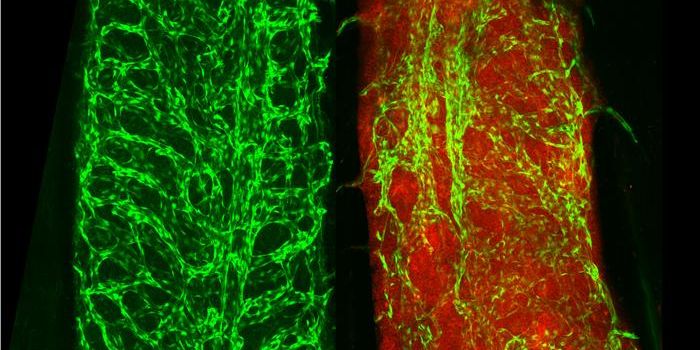Itraconazole: the key is in the dosage
Precision medicine specific to a patient’s genetics or immune system is spearheading new paths of cancer treatment. Now research from UT Southwestern scientists suggests that precise dosage is just as important in patient care. Looking specifically as a drug called itraconazole which is used to manage infections as well as treat cancer, the research team found that cancer patients required a wide range of dosages for the drug to be effective.
To fight fungal infections, itraconazole, also known as Sporonox, Sporaz, or Orungal, is usually administered at a single, fixed dose independent of the patient. The drug was discovered to be effective in treating several types of cancer (lung, prostate, and skin cancers) over a decade ago by inhibiting cellular growth pathways and stopping the formation of new blood vessels initiated by cancers. Yet the researchers behind this study, which was published recently in the journal Clinical Cancer Research, say that even with a set dosage, lung cancer patients absorb different levels of the drug into their bloodstream.
"What this means going forward is that, in future studies of itraconazole for the treatment of cancer, it may be important to check each patient's drug level and tailor the dose," says first author David Gerber, M.D., a professor of internal medicine and population and data sciences at UTSW. "In this context, there's no one-size-fits-all dose," notes Gerber.
The team tested different regimens of the drug on 13 patients with non-small cell lung cancer who were already scheduled for surgery to remove their tumors. Patients were administered 300 milligrams twice a day with food leading up to their surgeries. When the researchers looked at their tumor samples following surgery, they found that levels of itraconazole varied from 1,244 ng/g to 7,094 ng/g – or an almost sixfold range. Such a large range can’t be explained by body mass and kidney or liver function, say the researchers.
"There was growing evidence that itraconazole conveyed a survival advantage to patients," says Kim. "But, in this new work, we wanted to take a step back and look more at the biology and pharmacology of what was going on with this drug in cancer patients."
"This study highlights the need when repurposing drugs, to look closely at the dosing," says William Trey Putnam, Ph.D., director of the Clinical Pharmacology Center at Texas Tech University Health Sciences Center. "In different diseases, the dosing can end up needing to be quite different."
While the researchers recognize the need for larger studies, they say their findings are statistically significant and call on the need for an improved understanding of itraconazole in cancer treatment. Given the benefits that the drug can have on reducing tumor growth and the inexpensiveness of it, the team says itraconazole merits further investigation.
Sources: Clinical Cancer Research, Science Daily









